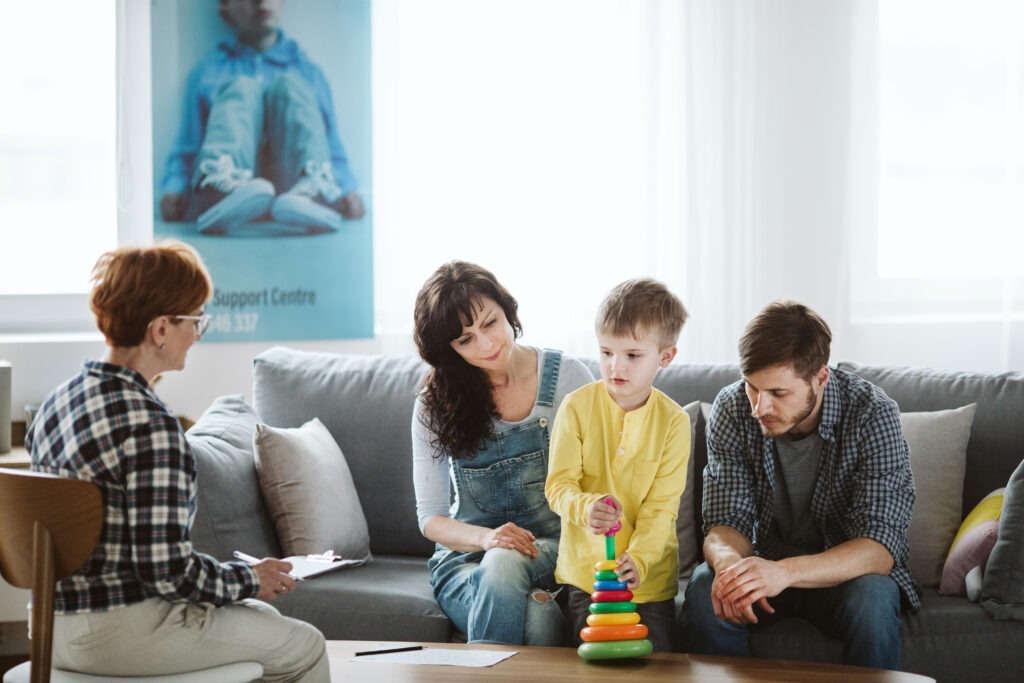
7 Simple Tips For Parents Supporting Children In Therapy
When your child starts therapy, it’s natural to have questions about how to support them through this process best. Therapy plays a crucial role in supporting kids as they deal with emotional, behavioral, and mental health issues.
As a parent, your involvement can significantly impact your child’s progress, whether they’re attending child therapy, child counseling, or behavior therapy.
Here are some essential tips for supporting your child on this journey.

1. Understand the Importance of Parent Involvement
Your active participation in your child’s therapy is crucial. Therapists often use methods like ABA therapy services to tackle issues like autism spectrum disorder or behavioral problems, but the parents play an important role, too because they help reinforce these techniques at home.
It’s essential to engage with your child and therapist to learn what approaches are being used and how you can help your child practice these new skills in a supportive environment.
2. Create a Supportive Home Environment
Your home environment can significantly influence your child’s therapy progress. Providing a safe space where they feel emotionally supported can make a world of difference. As a parent, you can foster open communication, provide emotional support, and reinforce the therapeutic techniques your child is learning in therapy.
Therapy often focuses on emotional regulation, effective communication, and social skills, which children need to practice regularly. Whether your child is in play therapy, cognitive behavioral therapy, or family therapy, try to implement the strategies learned during therapy sessions at home.
This consistency helps reinforce their learning and fosters emotional growth.
3. Stay Informed and Engaged in the Therapeutic Process
It’s vital to stay informed about your child’s specific mental health or behavioral treatment and therapeutic goals. Attending family therapy sessions allows you to understand the therapeutic process better, learn valuable coping skills, and offer emotional support to your child.
Through this partnership, you can create consistency between your child’s therapy and daily life for a unified approach. A trusted childrens psychologist, as part of this collaboration, can provide strategies tailored to your child’s needs, reinforcing therapeutic goals at home
It’s essential for you as a parent to stay informed and engaged because your involvement helps reinforce therapy techniques at home and ensures consistency in your child’s progress.
Different types of therapy, such as child interaction therapy or cognitive-behavioral therapy, require varying levels of parent involvement. By staying engaged, you can provide better guidance and emotional support to your child as they navigate their health challenges.
4. Practice Open Communication
By having open communication with your child, you can effectively build trust and emotional intelligence. When you help your child feel comfortable sharing their feelings, whether it’s through talking, creating art, or playing, you can help boost their communication skills.
This is especially important for younger children who may struggle with emotional expression during therapy. Keep the lines of communication open with your child’s health professional as well, so you’re always aware of any concerns or progress made during therapy sessions.

5. Manage Expectations and Be Patient
Therapy isn’t a quick fix. Instead, it’s a gradual process in which your child will learn to overcome mental health issues, develop new skills, and manage behavioral problems over time.
Whether they’re dealing with health issues like autism spectrum disorder or working through emotional regulation challenges, the road to improvement is often long and requires patience. Be mindful not to expect immediate results. Therapy requires time, consistency, and dedication from both the child and the family.
6. Encourage Peer and Professional Support
Kids can really gain a lot from joining a support group or a peer network where they can talk about their experiences with others who get what they’re dealing with.
These groups, led by qualified health professionals, can complement individual therapy sessions and help children feel less isolated in their struggles.
Family therapy and group therapy can also improve family dynamics and strengthen relationships within the home.
7. Help Your Child Develop Coping and Stress Management Skills
One important part of therapy is teaching kids coping skills to handle stress, frustration, and anxiety. Therapies like dialectical behavior therapy, mindfulness techniques, and narrative therapy help children understand and manage their emotions.
Supporting your child in practicing these skills at home will contribute to their overall emotional well-being and improve their academic performance and social interactions.
8. Maintain a Consistent Routine
Therapy works best when supported by a stable routine. Whether your child is attending behavioral therapy, art therapy, or expressive therapy, consistency in their daily life reinforces the therapeutic techniques they’re learning.
A predictable routine also helps children feel secure, which is essential when they’re working through mental health or behavioral challenges.
Let’s Review
Supporting your child through therapy is a meaningful journey that requires patience, understanding, and active involvement. By creating a supportive environment at home, staying engaged in the therapeutic process, and fostering open communication, you help lay the foundation for their emotional and behavioral growth.
Remember that progress takes time, and by working alongside your child’s therapist, you can ensure they develop the necessary coping skills and emotional intelligence to navigate their journey toward better health.
With your ongoing support and encouragement, your child can thrive and achieve their therapeutic goals, gaining the skills they need to face life’s challenges with resilience and confidence.
Welcome to my blog! I am an activity mom of three and I have over 15 years of experience crafting, writing, designing and creating. My mission is to bring fun, balance and learning to your busy homes with activities, tips, inspiration, and organization!






